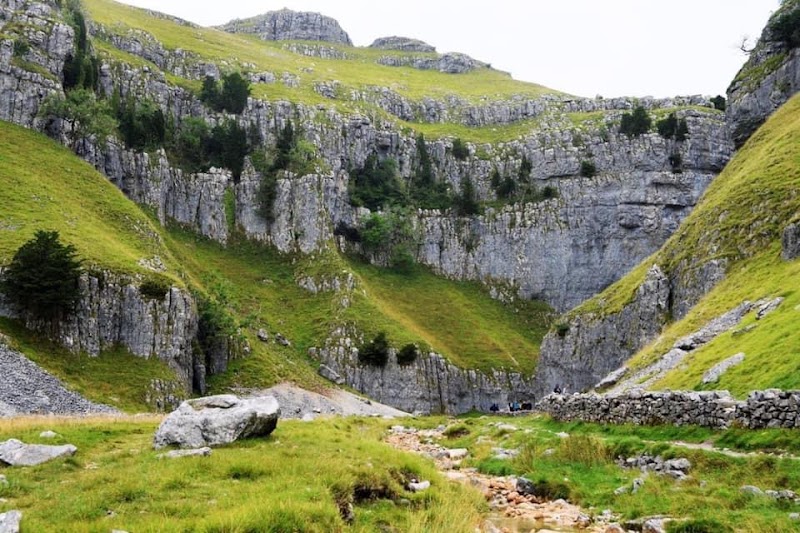
Exploring Sale’s Community Outdoor Markets and Fairs: A Practical Guide
Sale’s community outdoor markets and fairs pulse with local culture and goods, making them essential stops for visitors seeking authentic experiences. From fresh produce to artisan crafts, these events offer a lively, accessible outing that blends shopping with the town’s unique spirit.
Arrive Early for Freshest Finds
Getting to the market early ensures access to the freshest produce and smaller crowds, giving you the best chance to explore at your own pace.
Bring Reusable Bags
Carry your own bags to shop sustainably and comfortably, especially if you plan to pick up fruits, vegetables, or multiple artisan items.
Dress in Layers and Comfortable Shoes
Sale's open market areas expose visitors to the elements, so wearing layers helps adjust to changing weather, and good shoes ease walking on mixed pavements.
Plan for Payment Variety
Although many stalls accept cards, bringing some cash is wise as some vendors prefer it, especially on fair days where card machines may be unreliable.
Exploring Sale’s Community Outdoor Markets and Fairs: A Practical Guide
Sale, Greater Manchester, pulses with a very distinct kind of energy every weekend as its community outdoor markets and fairs unfold beneath the open sky. These aren’t just places to browse and buy—they’re vibrant hubs where local culture, fresh produce, handcrafted goods, and shared stories converge. Set in accessible public spaces, these markets invite adventurers of all kinds—whether you’re a casual visitor or a seasoned local—into a hands-on experience packed with colors, textures, and aromas.
The Sale Market takes place on the town centre’s open stretch, presenting an organized array of stalls featuring everything from fresh fruit and vegetables to unique artisan wares. Expect to cover about a half-mile loop that is perfectly walkable at an easy pace. The surface is predominantly paved, making it accessible whether you’re on foot or using a cycle, stroller, or wheelchair. The market’s layout encourages exploration, with bursts of music and easy chatter floating between vendors.
If you visit on a fair day, typically held in the warmer months such as May and September, the atmosphere thickens with the thrill of rides, street performances, and food stalls offering classic British treats alongside multicultural flavors. Terrain here shifts from hard paving to neatly tended green spaces, where you can pause and let the fair’s buzz fade into a quiet afternoon rest.
Timing matters. Early mornings see the freshest produce and shorter queues, while later in the day delivers more chances to snag discounts and experience live entertainment. Prepare for variable weather—Sale’s open spaces embrace the elements with no protective cover, so layering is smart. Hydration is key, especially in summer, and sturdy footwear will serve you well to navigate cobblestones and occasional uneven pavements.
Beyond the practical, these community events give a glimpse of Sale’s fiercely local spirit. Vendors often share their stories and tips, linking back to the area’s rich history of trade and gathering. Wildflower planters nearby attract bees that hum their own steady rhythm, reminding visitors that this market breathes alongside nature, not apart from it.
If you’re photography-minded, early morning or late afternoon light captures the scene best—shadows stretch across stalls, spotlighting textures and smiles unscripted. Observe how the river nearby dares the day forward, winding quietly past the town’s edge, a subtle reminder of Sale’s connection to the wider Greater Manchester landscape.
Overall, Sale’s outdoor markets and fairs offer more than shopping; they offer a direct link to community rhythm. Approaching them with curiosity and preparation ensures you engage fully with an experience powered by place, people, and the pulse of outdoor life.
Nearby Trips
All Adventures
Boat Charters
Water Activities
Adventures near Sale, Greater Manchester
Discover the unique and memorable adventures that make Sale, Greater Manchester special.
Frequently Asked Questions
Are Sale’s community markets wheelchair accessible?
Yes, the majority of Sale’s community markets and fairs are held on paved surfaces with good accessibility for wheelchairs and strollers, though some temporary uneven areas may exist near fairground rides.
When are the main market and fair days in Sale?
Sale Market operates year-round on Saturdays, with occasional Wednesday markets. Fair days typically occur in late spring and early autumn, often in May and September.
Can I find local artisan foods at these markets?
Absolutely—Sale’s markets emphasize locally sourced foods and artisan products, from handmade chutneys and pies to freshly baked breads and cheeses.
Are pets allowed at the markets and fairs?
Most markets welcome well-behaved dogs on a leash, but some fair areas with rides and crowds may restrict pets for safety reasons.
Is public transportation available to Sale markets?
Yes, Sale is well connected by tram and bus services from Manchester city centre, making it an easy trip for visitors without vehicles.
What are some lesser-known features near the markets?
Just behind the main market stretch, quiet green spaces along the Bridgewater Canal offer peaceful spots away from the bustle, where local wildlife like kingfishers and swans can often be spotted.
Recommended Gear
Comfortable walking shoes
Essential for covering market grounds with mixed pavement and occasional uneven surfaces comfortably.
Reusable shopping bags
Necessary for carrying purchases sustainably and with ease.
Water bottle
Staying hydrated is critical, especially during sunny summer market days.
Weather-appropriate layering
Dressing in layers offers flexibility to adapt to Sale’s variable open-air conditions.
Local Insights
Hidden Gems
- "Bridgewater Canal towpath for a tranquil walk adjacent to the markets"
- "Quiet greenhouses behind the market area showcasing local horticulture"
Wildlife
- "Kingfishers along the canal"
- "Seasonal swans and mallards near water edges"
History
"Sale’s markets reflect a centuries-old tradition of local trade dating back to medieval times when the town served as a market cross-town for regional farming communities."
